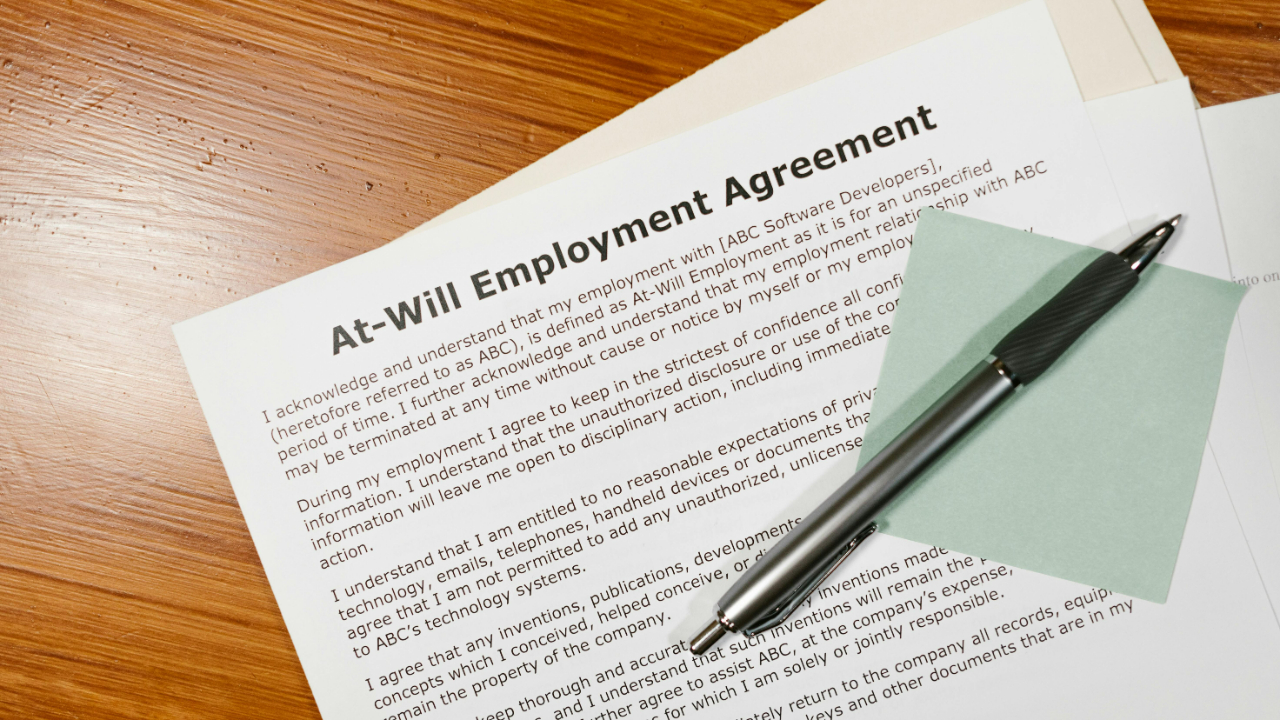What Does “At-Will Employment” Really Mean? Common Misunderstandings

In the United States, most employees work under what’s known as “at-will employment.” While this term may sound straightforward, it’s often misunderstood by both workers and employers. Many people assume it gives employers unlimited power—or conversely, that employees can never be wrongfully terminated. The truth lies somewhere in between.
Here’s what “at-will employment” really means—and the most common misconceptions surrounding it.
What Is At-Will Employment?
At-will employment means that an employer can terminate an employee at any time, for any reason—or no reason at all—as long as the reason isn’t illegal. Likewise, employees are free to leave a job without notice or cause. It’s a flexible arrangement that allows both parties to end the working relationship when they see fit.
This concept is the default in most states unless there is a contract or law that specifies otherwise.
Common Misunderstandings About At-Will Employment
1. “I can’t be fired if I’m doing a good job.”
This is false. In an at-will arrangement, even high-performing employees can be let go without warning. The employer doesn’t need to provide a reason—unless one is required by a contract, union agreement, or policy manual.
That said, being fired for discriminatory reasons (e.g., based on race, gender, religion, age, disability) is illegal under federal and state laws, regardless of performance.
2. “I have no rights if I’m an at-will employee.”
Also false. At-will employees are still protected by workplace laws. You can’t be fired for reasons that violate:
- Anti-discrimination laws
- Retaliation protections (e.g., for whistleblowing or filing a complaint)
- Family and medical leave laws
- Public policy protections (such as refusing to do something illegal)
So while the employer can fire you for nearly any reason, they cannot fire you for the wrong reason.
3. “My employee handbook says I’m at-will, but we agreed I’d have job security.”
Handbooks often include at-will disclaimers, but oral promises and written policies can complicate things. If your employer makes a statement or takes an action that contradicts the at-will status—such as promising job security or only firing “for cause”—courts may interpret that as modifying the at-will agreement.
Always clarify expectations in writing, especially if you’re negotiating job terms beyond the norm.
Discover: The Risks of Relying on Verbal Agreements in Business Transactions
4. “Employers have no consequences for firing at-will employees.”
Not true. Even in an at-will relationship, employers can still face legal action if the termination violates public policy or appears retaliatory. Unfair firings may also damage a company’s reputation, employee morale, or ability to recruit new talent.
Read more: How to Handle Employee Termination Legally and Ethically
Final Thoughts
At-will employment offers flexibility, but that doesn’t mean it’s lawless. Employees still have rights, and employers still have responsibilities. Understanding what “at-will” really means helps both sides navigate the workplace more confidently—and avoid costly misunderstandings.
If you're ever unsure about your rights, it’s wise to consult your HR department or speak with an employment law attorney. A little clarity now can prevent a lot of frustration later.
For legal help in California and your other needs, contact BERYS LAW on this page. We also offer courses on real estate investing, landlording, and templates right here!
Stay connected with news and updates!
Join our mailing list to receive the latest news and updates from our team.
Don't worry, your information will not be shared.